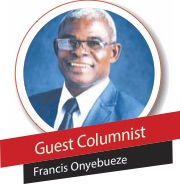For far too long, the brutal campaign of violence sweeping across Nigeria’s Middle Belt and beyond has been deceptively branded as “farmer-herder clashes.” This misleading term suggests a spontaneous, resource-based conflict. But it is a grave falsehood—one that cloaks the terror, genocide, and ideological warfare that has left thousands dead and entire communities displaced.

What Nigeria faces today is not a simple dispute over land. It is a coordinated, ideological assault waged by Fulani militias, operating with precision, persistence, and impunity. Their targets? Not only Christian farming communities, but also traditional tribal groups, rural dwellers, women, children, and Muslims who resist their extremist expansionist agenda.
This is terrorism, and it is time the world recognizes it as such.
What is happening in Plateau, Benue, Southern Kaduna, Borno, Niger, Kwara, and parts of the Southeast and the Southwest is not random violence. It is part of a sustained land conquest driven by Fulani extremists who are emboldened by silence, government inaction, and sometimes, tacit complicity.
Entire villages are burnt to the ground. Families are slaughtered in their sleep. Women and girls are raped and abducted. Children are mutilated. People are kidnapped from their homes, churches, farms, and even highways—routed into forests controlled by armed herdsmen who demand ransom or force conversions.
Christian communities have borne the brunt of these atrocities, yes. But so have Muslim villages that refuse to adopt extremist ideologies, ethnic minorities defending ancestral lands, and secular families that reject the creeping radicalism being imposed by the barrel of a gun.
The Fulani militia’s operations exhibit all the hallmarks of terrorism. These are not angry herders searching for pasture—they are well-armed, strategically deployed, and ideologically motivated insurgents. Their tactics — burning churches, ambushing worshippers, and imposing religious doctrines by force — reveal a clear objective: to eliminate opposition, seize land, and Islamize traditional communities.
To call this “farmer-herder clashes” is not only intellectually dishones but also morally indefensible. It shields the perpetrators, gaslights the victims, and dilutes the urgency of response from both the Nigerian state and the international community.
In her testimony before the U.S. Congressional Subcommittee on Africa, human rights advocate, Nina Shea pulled back the veil. She described in stark terms the organized terror campaign waged by Fulani militias and urged U.S. lawmakers to stop enabling the Nigerian government’s silence and inaction.
Groups like Genocide Watch and Christian Solidarity International have for years warned of impending genocide in Nigeria. Their reports document the killing of over 60,000 Christians since 2000—most of them in what they describe as “silent slaughter.” But these numbers tell only part of the story.
Thousands of Muslims, ethnic Tiv, Idoma, Berom, Jukun, Igbo, Hausa, and Yoruba farmers have also been killed, raped, or displaced. What unites them is not religion or ethnicity, but their opposition to forced conquest and radical ideological submission.
President Bola Ahmed Tinubu’s recent declaration of “Enough is enough” is a welcome rhetorical step, but it falls woefully short of action. For years, Nigerian security forces have been either underpowered, under-resourced, or under orders to do nothing. There have been zero meaningful prosecutions. No known Fulani militia leader has been captured, disarmed, or tried for crimes against humanity.
Even as terror grips rural Nigeria, large parts of the country remain under-policed or governed by local warlords. Security checkpoints —where they exist —are more often used for extortion than protection. Survivors of attacks report seeing security forces stand down or arrive long after the damage has been done. This is either complicity, incompetence, or a terrifying blend of both. And it cannot continue.
Nigeria stands at a crossroads. The survival of its pluralistic society, its democracy, and its future depends on calling this crisis what it is: terrorism with an Islamist expansionist agenda. The time for euphemisms is over.
The Nigerian government must formally designate Fulani militias, Fulani herdsmen, Fulani bandits as terrorist organizations.
A nationwide counterterrorism operation —decentralized, locally driven, and adequately resourced —must be launched immediately.
State and local governments must be empowered to defend their territories without waiting for Abuja’s permission.
International bodies, including the UN and AU, must monitor and document ongoing atrocities, and establish war crimes tribunals for perpetrators.
Faith leaders, both Christian and Muslim, must unite publicly to denounce this violence and reject the hijacking of religion for political and territorial conquest
Nigerians must come together on a Sovereign National Conference to decide “if” and “how” they want to be Nigerians. The “made in England Nigeria” has expired and like expired drugs can only produce the terrorism we have on our hands today and if not addressed would lead to the burning down of the whole country with unprecedented bloodbath and ruin,
Conclusion
What Nigeria faces is not a “clash.” It is not an age-old tribal problem. It is terrorism rooted in ideology, seeking to reshape Nigeria’s demographic and religious landscape through bloodshed and fear.
If this is not confronted now —with honesty, courage, and unified national resolve —then tomorrow, there may be no Nigeria left to save. What begins with the burning of one village can end in the burning of a nation.
Enough is enough —but those words must now be followed by action, justice, and truth.
• Nmeribe, a civil security intelligence professional, industrial security researcher and author, writes via: [email protected].

